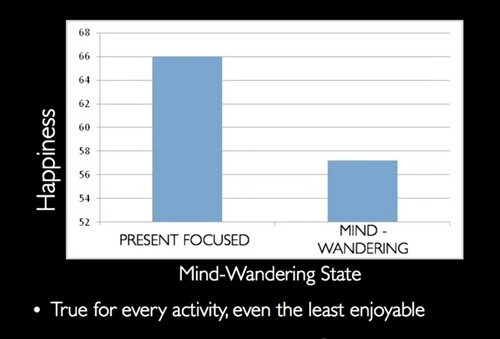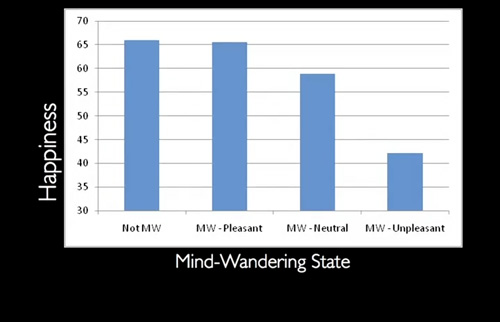The Science of How Your Mind-Wandering Is Robbing You of Happiness
Syndicated from brainpickings.org, Apr 04, 2013
“The main thing is to get what little happiness there is out of life in this wartorn world,” Clare Boothe Luce advised her young daughter, “because ‘these are the good old days’ now.” And yet most of us are conditioned to escape into the past, into the future, into our to-do lists — to wander off away from the present, even as we chronicle the moment in real-time on various lifestreaming platforms.
If you’ve read any of these seven essential books on happiness or taken the sage advice of Jackson Pollock’s dad, the research findings from his Track Your Happiness project Matt Killingsworth shares in his TEDxCambridge talk will be of no surprise. Still, there’s something grounding about the unequivocal empirical evidence of something most of us intuit on some level, often with great discomfort:
People are less happy when they’re mind-wandering, no matter what they’re doing.

Strikingly enough, that mind-wandering is a cause rather than a consequence of unhappiness is at once jarring and heartening — it suggests that by training our minds to be more fully present, we’d be honing our capacity for happiness, something Eastern philosophy has long maintained. But perhaps the most surprising and most commanding finding is that even when people’s minds wander off to pleasant things, they’re less happy than when they are fully present in the moment:

Remind yourself of what it’s like to celebrate the present with history’s greatest moments of everyday happiness, then reel yourself back into the moment with a lesson in immersive living from Henry Miller.
This article is reprinted with permission from Maria Popova. She is a cultural curator and curious mind at large, who also writes for Wired UK, The Atlantic and Design Observer, and is the founder and editor in chief of Brain Pickings.
